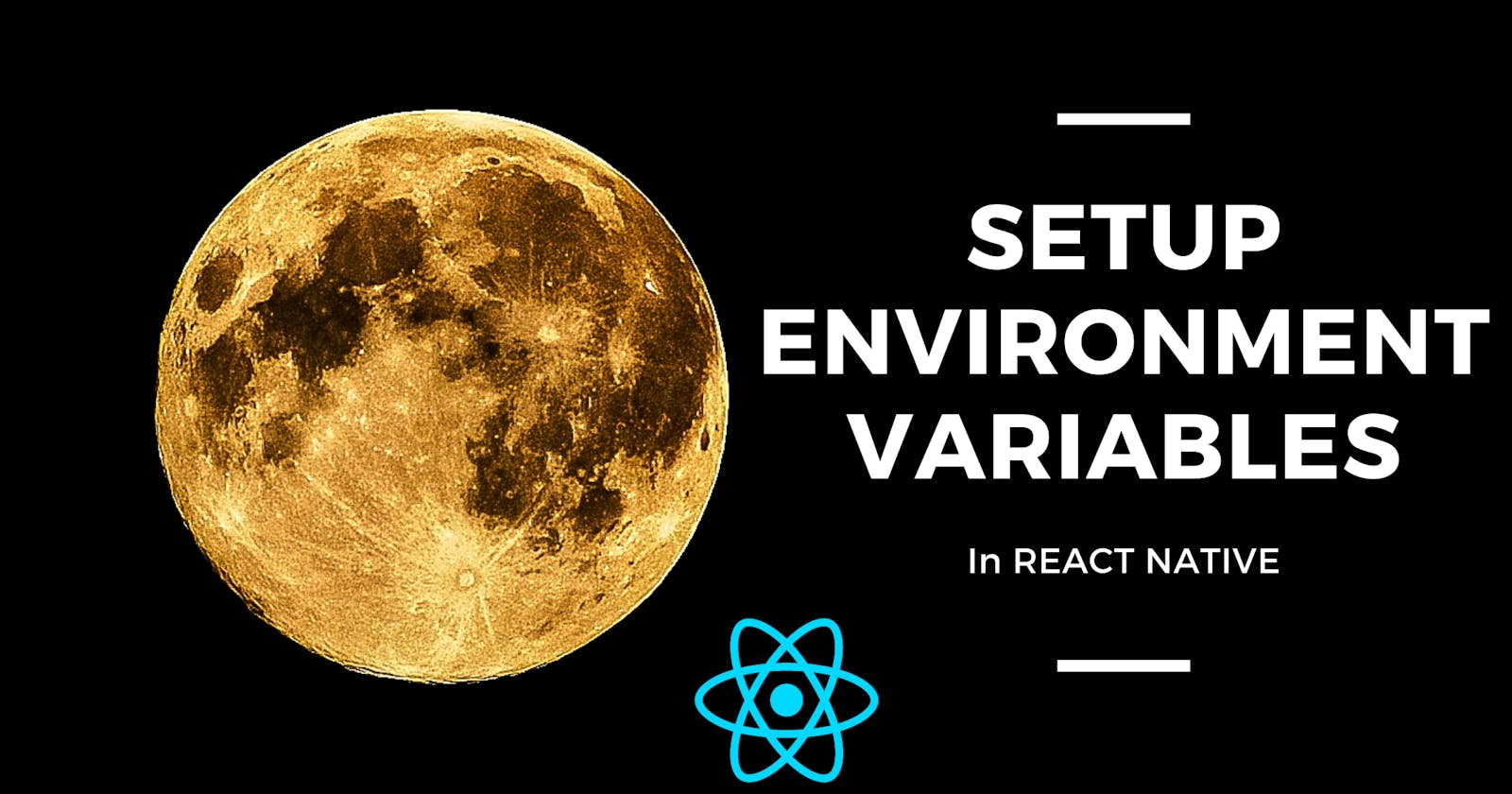There are a lot of ways in which we can use environment variables in React Native, you can look at many of them listed in this stack-overflow question
The purpose of this blogpost is to point out and explain the simplest and quickest way to make use of environment variables in your RN project with typescript type checking, you can still follow this blog if you are just using javascript.
We will be making use of the handy npm library react-native-dotenv
STEP 1: Install following packages:
npm install react-native-dotenv
or
yarn add react-native-dotenv
For typescript install additionally:
npm install -D @types/react-native-dotenv
or
yarn add -D @types/react-native-dotenv
STEP 2: update your babel.config.js
This blogpost uses an expo managed project, hence the babel.config.js will look like
module.exports = function (api) {
api.cache(true);
return {
presets: ["babel-preset-expo"],
plugins: [
[
"module:react-native-dotenv",
{
moduleName: "@env",
path: ".env",
},
],
],
};
};
here, moduleName is the alias we can give to react-native-dotenv library so we can import like:
import { ENV_VAR } from "@env"
instead of:
import { ENV_VAR } from "react-native-dotenv"
this just makes importing a bit easier :)
STEP 3: Create a .env file in the root directory and add your environment variable
ENV_VAR=some-secret-value
STEP 4: Use the environment variable by importing it
import { ENV_VAR } from "@env"
STEP 5: Add typescript support
 If you are using Typescript in your project, so you must have observed that typescript is yelling at you in STEP 4.
To fix this, we will create an
If you are using Typescript in your project, so you must have observed that typescript is yelling at you in STEP 4.
To fix this, we will create an env.d.ts file in the root directory with the following content:
declare module '@env' {
export const ENV_VAR: string;
}
Wait a second! we are almost done, phew 😅
After this, you also need to update your tsconfig.json file with:
{
"extends": "expo/tsconfig.base",
"compilerOptions": {
"strict": true
},
"typeRoots": ["./types"] // <------ you need to add this
}
And now we are done!
Thank-you for reading this blog! The goal for me writing these specific use-case blogs is to create a directory which I can look back on in future for reference and also help the developer community while at it. Please consider following me here or on Twitter to get updates for my latest publications :)

